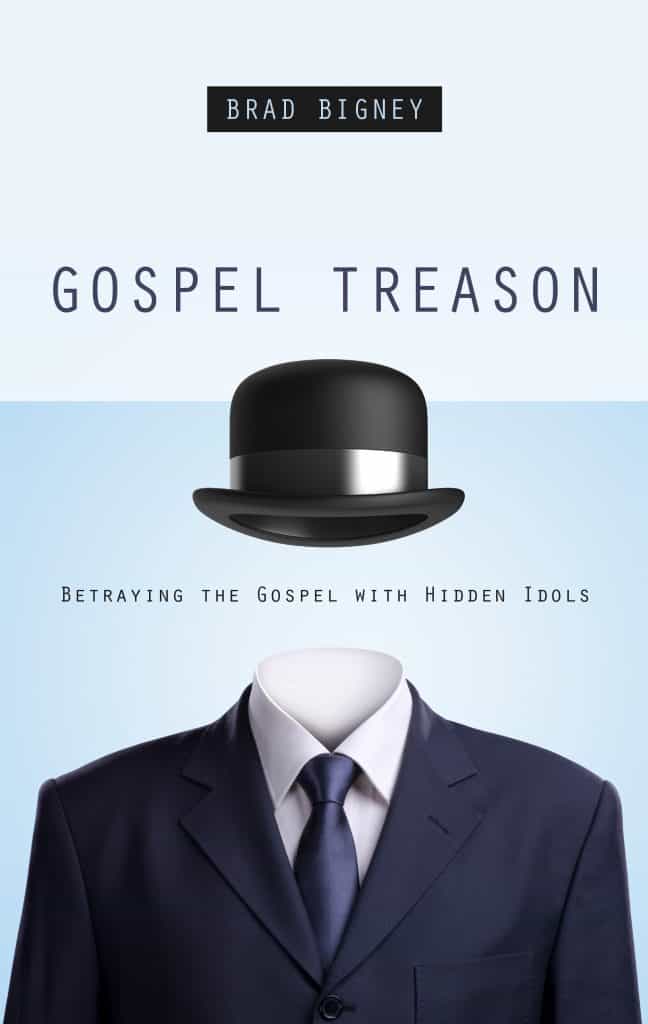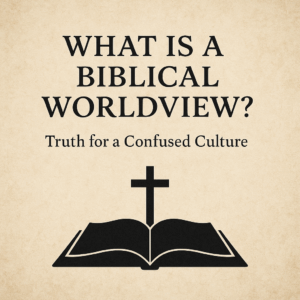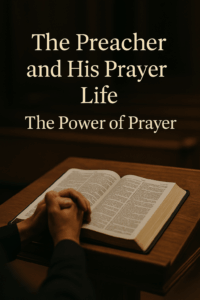⏱️ Estimated Reading Time: 5 min read
Behind many of our problems is idolatry. We may not all bow down to physical statues of foreign gods, but we all displace God in our hearts with other things, people, and desires. Seeking to identify, expose, and root our these idols from our hearts is essential to growth. To that end, Brad Bigney has written this fantastic manual for helping readers see afresh the ugliness of their idolatry and the Gospel that brings helps and hope to our situations. Gospel Treason is a wonderful resource for self-evaluation.
Brad is a senior pastor and a certified Biblical counselor. What makes this book interesting, however, is that he has also been the recipient of Biblical counseling. Much of his own struggle, sin, and idolatry is weaved into this book, demonstrating the practical application of the principles each chapter outlines. His transparency makes this a valuable resource, as readers will feel a growing sense of solidarity with the author. They will see how God can use His Word and His people to bring real help to our most frustrating situations.
The Problem, Solution, and Difference of the Book
The book’s three divisions follow a natural progression: the problem, the solution, the difference. Part 1 seeks to clarify what the problem is by defining idolatry and describing its implications for our lives. He speaks of idolatry as “gospel drift,” or, as the title suggests, a treasonous act against God. An idol is “anything or anyone that captures our hearts, minds, and affections more than God” (24). It starts in our own hearts as we turn away from God, seeking in other things what only He can provide.
Chapter two ends with a really helpful self-evaluative tool for identifying our own idols. Brad’s pastoral and counselor heart shines through this book as he regularly gives readers tools to do the hard heart work of evaluating themselves. This idolatry impacts not just our relationship with God, though that is central, but from there it impacts our sense of satisfaction, our sense of identity, and our relationships. By detailing the implications of our heart idols Brad helps to put more skin and bone on this sometimes nebulous term. He clarifies in helpful ways the real damage and destruction of idolatry.
In part two he seeks to give us a solution to this idolatry. Here Brad walks readers through how to identify and examine their idols, offering a number of helping tools to do that, along with probing questions to ask ourselves. His counseling experience comes to bear in these chapters in impeccable ways as he strives to walk us through this difficult process to the hope of the Gospel. He points readers to their relationship with God as the real means of transformation and gives us a number of warnings to avoid legalism. Finally, he discusses three habits “you need to establish in order to consistently detect and destroy idols of the heart” (184). Chapter 12 seeks to build on the momentum of the rest of the book and give us some help to sustain our own growth moving forward.
Part three rounds out the book with a single chapter looking forward. “What would an idol free life look like,” he asks (211). Here Brad describes five benefits of rooting our idols and helps us to hope and long for something more than what we presently experience. He leaves us with much hope and joy to look forward to. The final chapter reminds me of Paul’s words to the Corinthians; he writes:
For godly grief produces a repentance that leads to salvation without regret, whereas worldly grief produces death. (2 Corinthians 7:10)
Repentance that leads to salvation, though hard, comes without regret. The hard work that Brad calls us to, which God calls us to in the Bible, can be discouraging and disappointing. But if it is pursued with an eye towards the joy of growing in relationship with Jesus it will lead to repentance without regret. Brad regularly reminds us to “glance at our heart, but gaze at Christ” (35). Like most good Biblical counsel this book is not primarily about us, but about Jesus. Dealing with our own idols is not about us so much as it is about seeing Jesus as better than all the poor substitutes we strive for. This last chapter emphasizes the hope that is ours as we do the hard work of idol destruction.
Final Thoughts
Gospel Treason is a wonderful book. It is written in a highly accessible fashion, by a humble and godly counselor. Brad’s writing style and personal testimony make this book incredibly useful to a broad range of readers. I highly commend it to all and encourage Biblical Counselors to keep copies on hand to give away. It is a valuable tool for us all and one I know I will consult again and again for my own growth.




